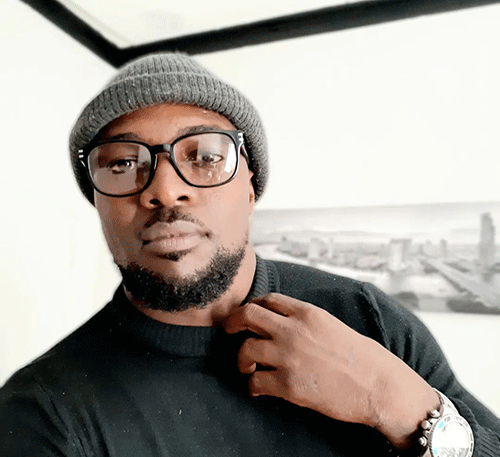Date of Birth: 1982-02-26
Place of Birth: Windhoek
Occupation: Namibia Handball Federation president
Tell us a bit about yourself and how you got into the sport of handball.
I grew up in the small town of Grootfontein and as a young man, I learned the value of finding solutions to others’ problems. A good friend who passed on this year introduced handball to me. His name was Venancius Rukero; he told me that with “great powers come great responsibilities” and handball has the power to unite our youth from all 14 regions of Namibia.
How would you describe the sport of handball?
Handball is a new sport in Namibia, with a vast area of exploration. Handball does not require much to set up – all one needs is a ball and goal posts, of which much of the action is hand movement. Handball is a combination of basketball, football, hockey and lacrosse. It is usually played indoors between teams of seven players, who pass a ball to throw it into the goal of the other team.
When was the Namibia Handball Federation established?
Namibian Handball Federation (NHF) was established on 29 November 2021, with the aim to unite the masses through the game of handball and promote all forms of handball in Namibia. Locally, we are affiliated with the Namibia Sports Commission and the Namibia Schools Sport Union.
How has the reception been since the sport was launched locally?
During the establishment of the federation, handball managed to attract over 400 participants countrywide and we are currently establishing school clubs in the following regions: //Kharas, Erongo, Oshana, Omusati, Ohangwena, and Oshikoto through our handball coaching workshop programme.
During the launch last year, your federation shared its plans to expand the sport to all the regions. How has the federation fared in that regard?
The federation’s plan of action was divided into two phases – the development workshop phase and the coaching workshop phase. The development workshop phase looked into forming regional executive committees that consist of an independent regional handball body with its president, vice president, treasurer, and technical director. The regional executive serves as the first line of information-sharing to a region from the mother federation and the technical director looks into the technical part of implementing handball in the given region. The coaching workshop phase invited the coaches from the African Handball Confederation to train all technical directors and one teacher representing sport in every region that went through the development workshop. The certified trainers are given the task to form school clubs in their regional schools for the upcoming handball regional tournaments scheduled to kick off in 2023.
At school level, has the sport managed to make some headway in terms of hosting development programmes and coaching clinics?
The first phase of handball development mainly focuses on forming school clubs, of which the Namibia Handball Federation is proud to inform that we are busy preparing for our 2023 handball school regional tournaments that are to be attended by the //Kharas, Erongo, Oshana, Omusati, Ohangwena and Oshikoto regions.
Is the Namibia Handball Federation affiliated to any continental or global bodies?
The federation is an affiliate member of the International Handball Federation and African Handball Confederation.
How does the federation sustain its daily functions, do you have any companies or partners that fund your activities?
The federation sustains its daily functions with the assistance of the sports ministry and Namibia Sports Commission which is assisting with transport, accommodation and connections in the regions. Coca-Cola and NamPower are our financial supporters and assistance is rendered in the form of cash and equipment like balls.
In terms of facilities, are there adequate facilities and venues where you conduct your activities?
During training, handball utilises netball courts and during our major workshops, we hire venues from SKW and DHPS, of which sometimes rejection is inevitable. There is a shortage of venues for handball but looking to the future, more areas will be identified to erect handball structures in line with our sports ministry.
What other challenges are the federation currently faced with to fully develop the sport?
Lack of financial support to purchase equipment for regions and proper media coverage to popularise the game of handball to the masses.
From a developmental perspective, what do you think Namibia needs to do for the sport of handball to catch up with the rest of the world?
Namibia has naturally-talented athletes capable of mastering the game of handball to a standard of professionality. But to discover such talent, both the government and the private sector should look into assisting the federation in its growth from the grassroots level to discover experienced players to form a national team.
Looking into the future, what are some of the objectives that the leadership has set for the federation?
To popularise the game of handball in all 14 regions of Namibia and host regional club competitions to select players for the national team to represent Namibia at the Olympics.
Besides being the president of the Namibia Handball Federation, do you serve the sport in any other role?
Currently, as a certified coach, I assist in the introduction and coaching of handball to previously-disadvantaged areas and schools such as Havana and Goreangab.



